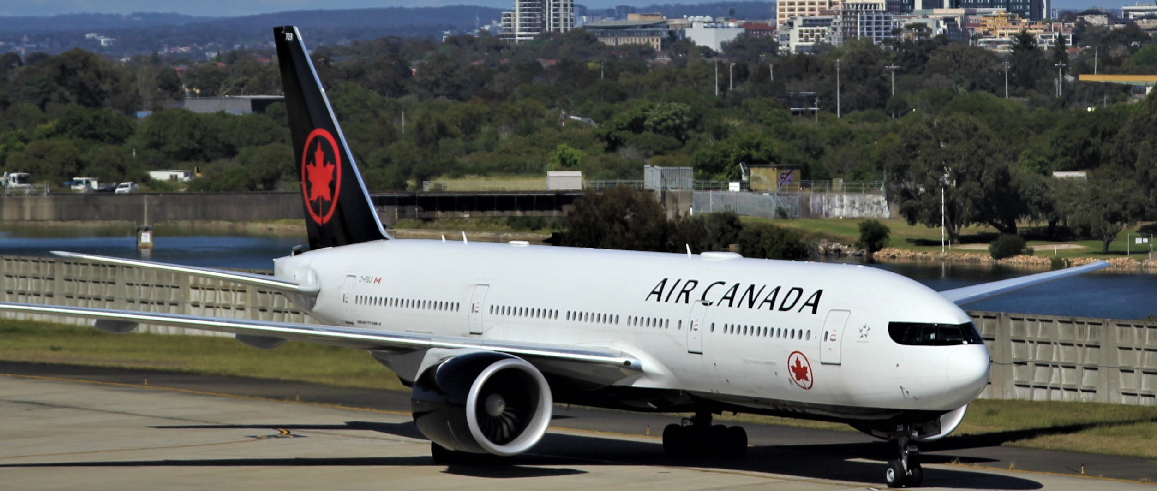Canada Work Permit
The Canada work permit is a document that allows foreign nationals to work in Canada for a specified period of time. Each year, the Government of Canada grants hundreds of thousands of work permits to temporary foreign workers from around the globe.
Before applying for a Canada work permit, our team of qualified lawyers at IAS can assist you in ensuring that everything is in order. To get started, contact us now on 0333 305 9375.
Read our 1001 reviews
Request a call back from our immigration experts
Benefits of Choosing IAS‘ Canada Immigration Lawyers
When it comes to obtaining a Canada visa or permit, IAS Canada immigration lawyers are well-equipped to help you.
With IAS’ track record of successfully helping clients visit or immigrate to Canada successfully, we can help you achieve your goal.
Our dedicated immigration lawyers provide our services through a comprehensive and personalised approach. With IAS, you enjoy:

Compassionate support from an experienced immigration lawyer dedicated to your success



Support in gathering supporting documents and completing a high-quality application.



Confidence that your case is being handled by an experienced team.



In-house document checks done by lawyers who are well-versed in immigration matters.
Services we Provide
Eligibility to work in Canada: Who is Eligible to Work in Canada?
A work permit is required for most foreign nationals who want to work in Canada, with some exceptions. A job offer from a Canadian employer is usually needed to apply for a work permit unless the foreign worker falls into a category that does not require an LMIA or job offer. These categories can include recent graduates of a Canadian Designated Learning Institute or the spouse of someone already working or studying in Canada on a valid permit.
Candidates who wish to apply for a work permit must generally fulfil the following criteria:
- Exhibit their intent to leave Canada after the expiry of the work permit; and
- Demonstrate they have adequate funds to back them and their family during their stay in Canada and to get back home; and
- Don’t have a criminal record or medical issue; and
- Intend to work with a qualified employer; and
- Capable of providing any documents in support of their eligibility to enter and work in Canada
How to Get a Canada Work Permit & Work Visa: Step-by-Step Guide
A Canada work permit normally requires the applicant to have an official job offer from a Canadian employer. The process for getting a work permit differs depending on the type of work permit being applied for and whether or not the applicant is exempt from needing a Labour Market Impact Assessment (LMIA).
There are two types of work permits- closed (restricted) and open. A closed work permit is specific to one employer, while an open work permit allows the holder to work for any employer. In general, obtaining a Canadian work permit entails applying for the appropriate type of work permit, preparing the necessary documentation, and ensuring that all requirements are met. Following these steps should allow for a successful application.
Canadian visitor visa holder can obtain a work permit without leaving the country. This temporary policy will be effective until February 28, 2025.
Before this new policy, foreign visitors who intended to work were allowed to submit a work permit application from within Canada to their home country’s visa office. If their application was approved, they had to leave Canada to be issued a work permit before re-entering the country.


Types of Canadian work permits: Open Work Permit vs Closed Work Permit
The type of Canadian work permit a foreign national may apply for will depend on several factors, such as the intended occupation, length of time needed to work in Canada and whether an LMIA is required.
There are a few different ways to get a work permit in Canada. You might need a job offer from a Canadian employer, or an employer might need to provide a Labour Market Impact Assessment. Or, you might just need some kind of connection to Canada, like previous education or spousal sponsorship.
To understand what work permit you need, please look at the following categories:
1. Requiring a Labour Market Impact Assessment (LMIA)
These work permits require a positive LMIA from Employment. An LMIA is a document that a Canadian employer may need to provide before employing a foreign employee. The purpose of the LMIA is to ensure that there is a valid need for a foreign worker in the specific job and that no qualified Canadian worker is available to do the job.
Temporary Foreign Worker Program (TFWP)
The TFWP allows employers in Canada to hire foreign nationals to fill labour shortages. IRCC (Immigration Refugees and Citizenship Canada) and ESDC (Employment and Social Development Canada) jointly operate the program.
The TFWP program also ensures that these overseas workers are given the rights and protections required to work lawfully in Canada. Employers may employ temporary foreign workers through the following categories under the TFWP:
- Foreign Academics
- High-Wage Workers
- Low-Wage Workers
- Foreign Agricultural Workers
- Global Talent Stream
- In-Home Caregivers
Facilitated LMIA (Quebec)
Quebec has a more simplified process for hiring foreign workers through the facilitated LMIA process. This is because the Canadian federal government has empowered Quebec with significantly more freedom than other provinces in their immigration procedures and policies. As a result, Quebec’s immigration policies are often treated differently from the other provinces. Consequently, the province has a few unique distinctions regarding hiring temporary foreign workers. Namely, Quebec makes it easier to hire foreign workers through the facilitated LMIA process.
An application for an LMIA must showcase proof that the Canadian employer has already published an advertisement against the job to Canadian citizens and made sufficient efforts to hire a local for the post. The facilitated Labour Market Impact Assessment system enables Quebec companies to apply without submitting this evidence.
Global Talent Stream
The Global Talent Stream (GTS) program helps Canadian employers employ highly-skilled people worldwide. The program enables employers to expedite hiring international talents through the Global Skills Strategy. The program was established in June 2017 through a collaboration between IRCC and ESDC.
The GTS program is designed to attract highly-skilled talent globally, promoting Canada’s economic growth. The program has two categories: Category A and Category B. These two categories have distinct needs but share certain GTS requirements.
2. LMIA-Exempt but requiring an employment contract or job offer
Obtaining a work permit in Canada can be complicated and time-consuming. Fortunately, there are many ways to speed up the process by becoming LMIA-exempt.
International Mobility Program (IMP)
The IMP is a work permit program that applies to certain highly skilled workers. If you qualify under the IMP, you may be able to obtain a work permit without an LMIA.
The following conditions justify these LMIA exemptions:
- comprehensive economic, social, cultural or similar special benefits for Canada; and
- similar benefits enjoyed by Canadian citizens and PRs.
A Canadian business must follow three steps to employ a foreign worker through the IMP:
- Positively confirm the workers under IMP qualify for an LMIA exemption;
- Deposit the compliance fee of CAD 230;
- Submit the formal job offer through IMP’s Portal.
NAFTA Work Permits
The North American Free Trade Agreement (NAFTA) is a trade agreement between Canada, the United States, and Mexico. The agreement makes obtaining certain work permits easier for citizens of these countries.
For a Canadian employer to hire a NAFTA (now known as USMCA) professional from the U.S. or Mexico, they must fall into any of the four situations:
- NAFTA Professionals
- Intra-Company Transfers
- NAFTA Investors
- Traders or Business Visitors
CETA Work Permits
The Comprehensive Economic and Trade Agreement (CETA) is a free trade agreement between Canada and the European Union. The agreement creates opportunities for European companies to set up operations in Canada and vice versa.
CETA also makes it easier for highly skilled European workers to work in Canada. If you are a citizen of an EU country, you may be eligible for a work permit under CETA’s International Mobility Program without the requirement for an LMIA.
There are four situations where an EU citizen may be able to get work authorization in Canada:
- Business Visitors
- Investors
- Intra-Company Transferees
- Contractual Service Suppliers and Independent Professionals
Intra-Company Transfers (ICT)
An intra-company transfer is when an employee of a multinational company is transferred to the company’s Canadian branch. The employee must have worked for the company for a minimum of one year in the last three years before being eligible for the transfer.
There are certain conditions both the employee and employer must meet to qualify for an ICT work permit. An LMIA is not required for an intra-company transfer under NAFTA.
3. Open Work Permits (no LMIA or job offer required)
A few types of work permits don’t require an LMIA or job offer. These are called Open Work Permits, letting you work for any employer in Canada or be self-employed. If you’re a student, some types of work permits don’t require an LMIA.
Post-Graduation Work Permits (PGWP)
If you graduate from a designated Canadian college or university (Canadian program of study), you may be qualified for a PGWP (Post-Graduation Work Permit). With this work permit, you can stay and work in Canada after graduation for three years.
The Post-Graduation Work Permit (PGWP) does not require a foreign national to obtain a Labour Market Impact Assessment (LMIA). Instead, the PGWP allows eligible graduates from certain programs to gain Canadian work knowledge. With adequate work experience, many foreigners become eligible permanent residents in Canada.
Sponsorship from SPOUSE Inside of Canada
If your spouse is employed or studying in Canada, you may be eligible for an open work permit if they sponsor you. You may also be eligible for this type of work permit if you have applied for permanent residence from within Canada and are waiting for a decision on your application.
The application process for this work permit varies depending on whether you are applying from inside or outside Canada. However, this open work permit does not require an LMIA.


International Experience Canada (IEC)
IEC is a program that enables young people from certain countries to come to Canada and work temporarily. If you successfully enter the IEC program, you can apply for a temporary resident visa without needing an LMIA. This permit allows you to stay in Canada for up to one year.
The IEC program operates through a randomized draw system. Not all foreign nationals who submit an expression of interest will be selected for the program. The chance of success for being selected depends on the quota for each program and country.
There are three separate programs within IEC, each with unique requirements that can result in different work authorisation forms. Applicants should verify the requirements for the program they are interested in before applying.
- Working Holiday
- Young Professionals
- International Co-op Internship
Bridging Open Work Permit (BOWP)
If you are a foreign national and already working in Canada, the Bridging Open Work Permit (BOWP) will enable you to extend your status while waiting for a decision regarding your permanent residency application. BOWP is only available if you have submitted a PR application and currently possess a valid work permit. If successful, an open work permit will be granted, allowing the holder to work for multiple employers across different locations of their choice.
The processing fee is CAD 155, and the BOWP fee is CAD 100, making it a total of CAD 255. Open work permits for foreign workers in Canada typically allow the holder to work for any employer, with some locations being off-limits to certain applicants.
Spouse Accompanying International Student or Worker
If you’re married and/or have kids, you may want to bring them to Canada when you come to study. Including your family members in your study permit application may influence the visa officer’s decision, but they will still be considered.
A study permit allows someone to study in Canada temporarily. In some cases, if a student plans to bring their family with them, the visa officer might think that the student doesn’t really plan to leave Canada after their studies. This could affect the decision of whether or not to issue the study permit.
Documents Required to Apply for a Canada Work Permit or Visa
The documents required to apply for a work permit will depend on the type of work permit you would like to apply for. The common documents required are:
- A valid passport or travel document
- Recent photos
- Complete application forms
- Proof that you have enough funds to support your stay in Canada and return to your home country
- An invitation letter from a Canadian employer (if needed)
- A job offer letter from a Canadian employer (if needed)
- LMIA (if needed)
- Medical exam results (if requested)
- CV/ résumé
- Proof of job status in Canada (if needed)
- Marriage certificate (if needed)
- Copy of all the education credentials
- Payment receipts for applicable fees
Canada Work Permit and LMIA Application Processing Time
The time it takes to process a work permit application varies depending on the type of work permit you are applying for and your country of citizenship. The processing time may also differ if you apply online or by paper. The typical processing time is a few weeks, but it can sometimes take a couple of months.
LMIA application processing time
A labour market impact assessment (LMIA) application can be a regular LMIA or a simplified LMIA. Only Quebec has the simplified LMIA, while the regular one takes various shapes and sizes. With processing times ranging from person to person, the regular LMIAs procedure is done on a case-by-case basis. It generally takes at least five months for an answer on a normal LMIA application.


Police Clearance Requirements for Canada Work Permit Applicants
A police clearance certificate may be required as part of the application process for a Canadian work permit. This document certifies that the applicant does not have a criminal record and is, therefore, eligible to work in Canada.
Police clearances may be required from any country where the applicant has lived for 6 months or more past 18. This requirement aims to ensure that those granted a work permit pose no threat to the safety and security of Canadian citizens.
Medical Examination Requirements for Canada Work Permit
Depending on their intended length of stay and occupation, foreign nationals who apply to work in Canada may need to take a medical exam. If they only plan to work in Canada for less than six months, they may not need an exam, with some exceptions. Exceptions, where a medical exam may be required, include jobs that involve close contact with people.
Applicants are welcome to submit their medical examination results upfront. This entails directly contacting the panel physician and taking the exam before submitting an application. If you do not provide your medical examination findings with your application, the IRCC officer will send instructions on how to complete it and when it must be finished.
Common Reasons for Canada Work Permit Application Refusals
There are several reasons why an application for a work permit may be refused. The most common reason is that the applicant does not meet the eligibility requirements. Other reasons include:
- The applicant is inadmissible to Canada due to criminal or security reasons
- The applicant poses a health or safety risk to Canadians
- The applicant could not convince the visa office that they would return to the home country after the expiry of the permit
- The applicant cannot persuade the officer that they could perform the job properly.
How IAS can assist with your Canada Work Permit Application?
Total Law can help you with all aspects of your work permit application, from start to finish. We can assess your eligibility, help you gather the required documents, and submit your application on your behalf.
We know the program inside out and can help you navigate it. Our Canadian immigration lawyers are trained in the country’s visa and emigration processes. We’ve helped several clients and firms obtain work permits by assisting them with their paperwork.
For any questions or concerns regarding the Canadian work permit, please contact us at 0333 305 9375. Alternatively, you can fill out our online contact form.
Table of Contents
Table of Contents will appear here.Legal Disclaimer
The information provided is for general informational purposes only and does not constitute legal advice. While we make every effort to ensure accuracy, the law may change, and the information may not reflect the most current legal developments. No warranty is given regarding the accuracy or completeness of the information, and we do not accept liability in such cases. We recommend consulting with a qualified lawyer at Immigration Advice Service before making any decisions based on the content provided.
Frequently Asked Questions
If you applied online, you could check the status of your application through your account on the IRCC website. If you applied by paper, you need to check the status by connecting it to an online IRCC account.
An open work permit allows foreign nationals to work in Canada without being restricted to a specific employer, occupation, or job offer. This work permit is generally issued to applicants with spouses or common-law partners who have been authorized to work or study in Canada.
A closed work permit restricts the holder from working for a specific employer, in a specific occupation, and usually for a specific period. Employer specific work permits are generally issued to highly skilled workers.
A Canadian work permit costs CAD$ 155 for a closed permit and CAD$ 255 for an open permit per person. If you are reapplying for a work permit as a group of performing artists, or if you are restoring one, you will be required to pay additional expenses.
Yes, you can apply to extend your work permit. You should apply at least 30 days before your current permit expires.
The first step is to make sure that you meet the eligibility requirements. You will also need a valid passport, a job offer from a Canadian employer, and proof of funds. Once you have the required documents, you can apply online or by paper.
The processing time for work permit applications varies depending on the application type and the applicant’s specific circumstances. In general, however, most applications are processed within a few weeks.


What our clients are saying
How our UK Immigration Lawyers can help
At the Immigration Advice Service our lawyers specialise in a wide range of UK visas, nationality and asylum applications and have represented clients in various successful complex and high-profile cases.















